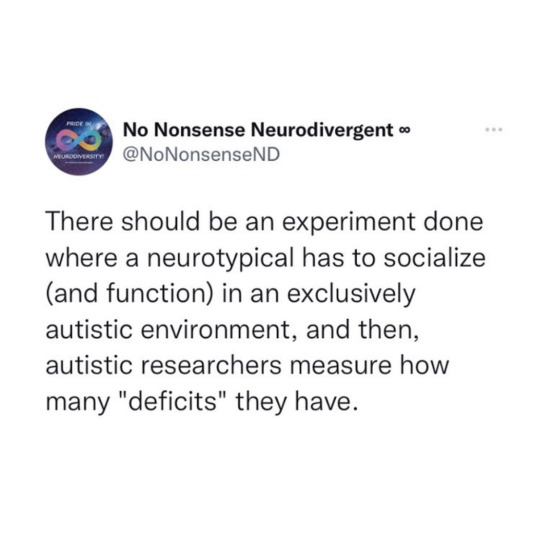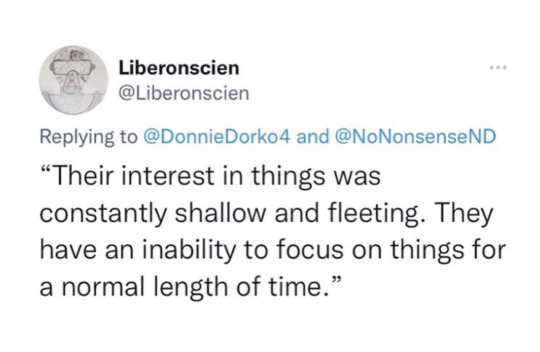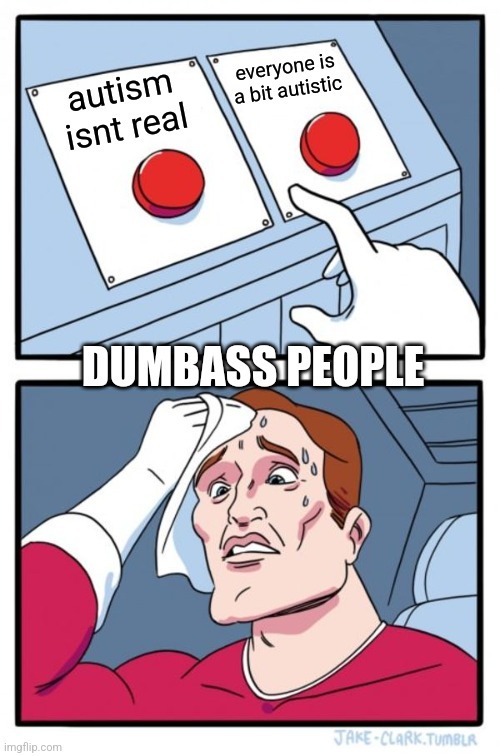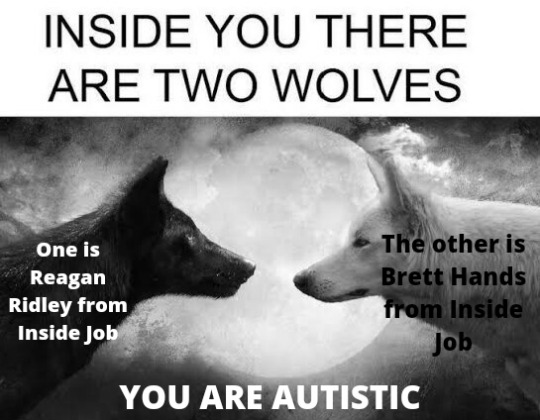#autism spectrum condition
Text

Reject Autism Speaks, embrace ultra-realistic and occasionally unintentionally autism-coded characters
#autism#asd#autism spectrum disorder#autism speaks#autism special interest#autism spectrum condition#chainsaw man#chainsawman#asa mitaka#mitaka asa#big boss#metal gear#mgs#metal gear solid#vergil#vergil sparda#dmc vergil#dmc#devil may cry#kazuma kiryu#kiryu kazuma#yakuza#ryu ga gotoku#rgg#charlie kelly#charlie day#its always sunny in philadelphia#always sunny#la creatura#yippee
3K notes
·
View notes
Text
YO BITCHES AUTISTIC PEOPLE CAN BE TRANS TOO
DON'T MATTER IF THEY GOT NO DAMN IQ, OR IF THEY SMART AS ALBERT FUCKING EINSTEIN
WE ALL DESERVE THE RIGHTS TO TRANSITION IF WE FUCKING WANNA
#transgender#transgender rights#trans rights are human rights#trans lives matter#support trans kids#protect trans kids#trans kids#autistic things#autism#actually autism#actually autistic#autism acceptance#autism community#autism spectrum#autism spectrum condition#autism spectrum disorder#autistic community#autistic positivity#autistic spectrum#being autistic#autistic pride#transgender pride#trans pride#trans autistic#transgender autistic#autistic trans#autistic life#trans rights#fuck transphobes#tw ableism
4K notes
·
View notes
Text






#autistic#actually autistic#autism#autism spectrum#autistic culture#asd#autism spectrum disorder#autism spectrum condition#neurodivergent#neurodiverse#autistic problems#autism awareness#neurotypical#autistic experiences#autism diagnosis
16K notes
·
View notes
Text
I can’t speak for anyone else but for me, being autistic is being the one that’s left out of the group every single time
It’s being the wallflower, the ghost, that one unremarkable person that no one would miss if they were gone
Being autistic and interacting with coworkers and friends and supervisors is like trying to solve a puzzle that has no reference picture
It’s like trying to solve a formula with a bunch of different factors such as social cues, tone, body language, eye contact, loudness, etc.
I’m trying to figure out how to solve for x but I can’t even figure out what y is, and I’ve never been good at math
I could read every book on social interactions, and still be unable to know when it’s my turn to talk because my brain isn’t wired that way
My brain was wired to live in my own fantasy land, in my middle earth. It was not meant to handle the stress of work plus socializing
Today I felt like everyone hated me because I cannot figure out what someone’s tone means. Is she joking with me, or is she mad?
My brain makes me feel like people pour poison about me onto other’s ears, behind my back, like how Claudius poisoned Hamlet’s father
I’ve had therapists that would tell me to just simply talk to people and ask them to hang out, as if it were that simple.
Alas, if only they knew that for me that feels like taking a dive into the fires of Mountain Doom! That the mere thought makes me shiver
I am autistic. And I’m proud to be autistic. But it is hard to exist in a world that was not designed for me, and I’m tired
#Andy speaks#autistic community#autistic problems#autistic#autistic adult#autistic spectrum#autistic culture#autistic things#being autistic#autistic experiences#autism spectrum#autism#autism spectrum disorder#autism spectrum condition#i am autism#i am autistic#disabled#neurodivergent#disability pride month#disability pride#disability pride month 2023#actually neurodivergent#neurodivergencies#poems on tumblr#autistic poet#original poem#my poem#poets of tumblr#Hamlet#Tolkien
1K notes
·
View notes
Text
Autistic culture is randomly switching your conversation style mid sentence. Specifically going from the most eloquent person you’ve ever met to talking like the child of a hill billy and a british pop star.
#yes i’m talking about myself#this might just be me#i’m a special breed of autistic tbh#autism#autistic#autist#autism thoughts#autism things#autistic things#autistic culture#actually autistic#being autistic#autistic experiences#autism spectrum disorder#autism spectrum condition#autism acceptance#autism awareness#fuck yeah#i’m in this photo and i don’t like it
6K notes
·
View notes
Text
The Affinity Between Autism and Stuffed Animals: An Unfurling Bond
The nuanced bond between individuals with autism and stuffed animals is a matter of significant intrigue and insight. The soft, predictable, and non-threatening nature of these plush companions presents a calming aura, contrasting the often overstimulating and unpredictable real world. This article delves into the underlying reasons explaining the predilection of individuals on the autism spectrum towards forming attachments with stuffed animals.
Sensory Processing: People with autism often experience sensory processing differences which may make them more sensitive or less responsive to sensory stimuli. Stuffed animals, with their soft and predictable textures, offer a soothing sensory experience. The tactile sensation can provide comfort, reduce anxiety, and help in managing overstimulation.
Predictability and Routine: Individuals with autism tend to favor routine and predictability. Stuffed animals, being inanimate, provide a consistent and predictable interaction. Unlike humans or other animals, stuffed toys do not change their behavior or appearance suddenly, which can be reassuring.
Emotional Regulation: Stuffed animals can serve as emotional regulators. They provide a source of comfort and security which can be particularly beneficial in unfamiliar or stressful situations. Their presence can also aid in self-soothing, which is crucial for emotional regulation.
Non-verbal Communication: For those with autism, interpreting social cues or engaging in social interactions can be challenging. Stuffed animals provide a non-threatening way to explore emotions and practice social skills in a safe, controlled environment.
Unconditional Acceptance: The unconditional acceptance offered by stuffed animals is comforting. Unlike interactions with people, there is no fear of judgment, rejection, or misunderstanding with a plush companion.
Symbolic Interaction: Stuffed animals can serve as a bridge to understanding and expressing emotions, as well as a medium to interact with others. They can act as proxies in social interactions, making the process less intimidating and more manageable.
Conclusion: The affinity towards stuffed animals among individuals with autism is rooted in both sensory processing and the emotional comfort derived from the predictable, non-judgmental companionship they offer. Understanding this bond can pave the way for developing more effective therapeutic interventions, thereby enhancing the quality of life for those on the autism spectrum.
#neurodiversity#acutally autistic#feminism#self love#autistic#actuallyautistic#autism spectrum condition#autism#neurodivergent#autismunfiltered
476 notes
·
View notes
Text
any other autistics feel their stress so physically it makes them sick? i’m not even sure why i’m stressed really but it’s so difficult feeling this way
any advice?
#autism#autistic#autistic experiences#actually autistic#autistic things#neuroatypical#neurodivergent#neurodiversity#autism spectrum disorder#autistic spectrum#asd#asc#autism spectrum condition
203 notes
·
View notes
Text
stop calling other autistics ableist for treating their autism like a disorder
I don't care if your autism doesn't make you feel disabled you're a minority and you don't get to call the terminology other autistic people use ableist. Especially terms that are useful for level 3/high support needs autistics
If you don't like the levelling system or support labels and think it's the same as functioning labels don't use them on yourself. Stop calling them useless ableist and harmful
People are pretending this doesn't happen anymore but there are still posts and articles and videos everywhere trying to erase terminology useful to many mid-high support needs
If you think it's bad to talk about our differences you're wrong. We can both be a diverse community and have differences that we label. If you want to pretend we're all the same just because we're autistic you've only spent time with autistic people like you
Some autistic people need levels to understand their own needs or find other autistic people they can relate to
Some people call themselves a person with autism instead because that's what they're comfortable with
Some autistic people don't like that they're autistic and find it hugely disabling and struggle to find positives in it
Some autistic people say they are severely autistic because of how disabling their autism is
Some autistic people look autistic and cant mask
Some autistic people still use functioning labels on themselves because it's familiar and helps them and it's what they're comfortable with
Some autistic people say they have a disorder condition disability or ASD because that's what they're comfortable with
If you want to treat your autism like just a difference we're not stopping you. If you want to treat everyone's autism like just a difference then we have problems
If a label doesn't help you that's fine. Don't speak on how helpful labels that never even applied to you are. If you think all autistics with higher support needs are incapable of knowing what's ableist so you have to talk over them you are wrong.
#long post#actually autistic#high support needs#autism#autistic adult#black autistic#poc#poc autistic#audhd#neurodivergent#asd#autism spectrum disorder#autism spectrum condition#level 3 autism#low functioning autistic#autistic experiences#autistic things#autistic community#autistic#actually neurodivergent#neurodivergency#ableism#disability#disability rights#nonverbal#nonspeaking#aac user
179 notes
·
View notes
Text
please reblog for bigger sample size !
310 notes
·
View notes
Text

stupid ass people..
#our memes#meme#memes#autism#autistic#autie#asd#autism spectrum disorder#autism spectrum condition#autism spectrum#autistic spectrum#autism meme#autistic meme#autie meme#asd meme#autism memes#autistic memes#autie memes#asd memes#abelism#abelist#actually autie#actually autism#actually autistic#actually neurodivergent#neurodiversity#neurodivergent#neuro divergent#neurodiverse stuff#neurodiverse
2K notes
·
View notes
Text
Being an autistic person at school:
comes with a lot of stress, mainly because it involves masking, which is a coping mechanism where I mask my autistic traits and try to behave more neurotypical. It’s very draining and requires a lot of energy, and it’s still not enough.
comes with w lot of stress because of sensory overload, e.g bright lights, increased sensitivity to certain sounds, crowded spaces, loud noise, bad smells and textures. Each of these factors make my daily life harder, I feel irritated, tired and overwhelmed/overstimulated.
comes with a lot of anxiety, because I have trouble communicating, I take things literally sometimes, I find it hard to know what someone’s tone of voice means, or their expression. It makes me overthink and overanalyze details in order to come up with an appropriate response.
comes with more increased pain, my period cramps, headaches, pain in general are stronger, which often leads me to a sensory overload and is invading my daily life and makes me unable to to concentrate on basic tasks. It also makes me unable to participate in PE classes sometimes.
comes with a lot of emotional dysregulation, since my body can’t regulate my emotions the way the neurotypical one does, it’s harder to do so. This makes it harder to write tests, complete excersises in class. It can take a toll on my mental health and grades.
#autism#autism awareness#autism blog#autistic#actually autistic#audhd#adhd#autistic women#autism spectrum condition#on the spectrum#autistic girl#emotional dysregulation#sensory overload#sensory issues#mental health positivity
114 notes
·
View notes
Text
finding diapers as a continent/semicontinent autistic
(This essay is not in Plain Language. Please tell me if you want a Plain Language version and I will write one.)
I was slow to toilet train: I routinely came home wet from kindergarten and was still wetting myself occasionally in third grade and later. This was mostly an executive function problem; I usually knew I had to pee, but didn't have the executive function to stop whatever I was doing to use the bathroom.
I didn't get much in the way of help for this: I was kicked out of diapers before entering kindergarten. In kindergarten and first grade, I was 'on a schedule', which meant staff would pull me out of class to take me to use the bathroom periodically, hopefully before I'd wet myself. As early as kindergarten, my parents yelled at me for wetting myself, and past first grade, yelling was all the help I got. No one suggested diapers as a way to avoid the shame and humiliation of accidents; it was apparently better for a third-grader to wet herself in front of her classmates than for her to wear diapers.
Eventually, like some autistics, I 'grew out' of it: I learned to absorb the executive function cost of interrupting myself to go pee, or the pain of holding it because I didn't want to interrupt myself, and I stopped wetting myself.
At some level, though, I always understood that diapers were something I needed: when I hit puberty, they became a fetish object; when I transitioned in my late twenties, they shifted to a non-sexual emotional comfort, and I started wearing them more often. As I worked through some of my childhood trauma in therapy, they shifted again, to a radical way of 'rewriting the story' for my younger self who'd needed them, and I started wearing them full-time.
(I want to stop here and acknowledge that I was privileged to be able to make this change in my life: I can afford to live by myself to avoid judgmental family or housemates, and I can afford to buy disposable diapers out of pocket. Many people can't, and I'd love to see diapers as a voluntary adaptation for autistics destigmatized and covered by insurance.)
Once I was wearing diapers full-time, something magical happened: my brain settled back into those same patterns from elementary school, using my diaper when I'm hyperfocused and using the toilet when I'm not. I find focused tasks easier and less stressful, since I don't have to interrupt myself to go use the bathroom in the moment or cope with the ongoing sensory and executive function cost of feeling and knowing that I have to go to the bathroom eventually. I don't worry about burning something on the stove, forgetting important context while programming, or losing the plot of a movie or TV show I wanted to watch. I can get what I wanted to get done more easily, and have more energy and cope left for other things.
Despite the obvious benefits, I still felt ashamed when I found myself wet after a period of hyperfocus; I wasn't 'supposed' to wet myself, and I wasn't 'supposed' to wear diapers.
A couple weeks ago, as part of a larger effort to find better accommodations for myself, I found @endeverstar's wonderful article "Finding AAC as a verbal/semiverbal autistic". It talks about how xe found speaking with mouth words difficult and stressful but was nonetheless forced into a bunch of speech therapy as a kid so xe could be considered "speaking"; nobody offered xem AAC as a kid because xe didn't 'need' it and it was stigmatized. Xe discovered AAC as an adult, quickly realized it was easier and less stressful than mouth words, and is at this point mostly-nonspeaking.
This was me, toilet training, and diapers. Everything suddenly made sense.
I found toileting without diapers as a backup difficult and stressful, but was nonetheless forced to so I could be considered "toilet trained"; nobody offered me diapers as a kid past the 'normal' age because I didn't 'need' them and they were stigmatized. I rediscovered diapers as an adult, realized they were easier and less stressful, and decided to wear them all the time.
Overnight, that last whiff of shame disappeared. Diapers aren't just a fetish object, an emotional comfort, or a way of 'rewriting' my trauma. Diapers are a valid adaptive choice for autistics, even those who are technically capable of always using the toilet!
So, to paraphrase endever*: if you're a continent or mostly-continent autistic person and you're wondering whether diapers might be useful for you -- consider this your permission slip! You're allowed to try them if you think they might help, and you're allowed to keep using them if you find them helpful. Toileting works for abled people, but isn't inherently superior; don't listen to anyone who says you're 'not allowed' to use diapers unless you 'need' them or that you should force yourself to always use the toilet if that doesn't work for you.
Everyone deserves access to the full range of communication methods that work for them, and likewise everyone deserves access to the full range of toileting strategies that work for them.
#incontinence#incontinent#neurodiversity#neurodiverse#neurodiverse squad#neurodivergence#neurodivergent#actually neurodivergent#autism#autistic spectrum#asd#autism spectrum disorder#autism spectrum condition#actually autism#autistic#actuallyautistic#actually autistic#ADHD#ADHD inattentive#ADHD problems#actually ADHD#autisticdiaperedandproud#autistic diapered and proud
622 notes
·
View notes
Text

#actually autistic#actually adhd#autistic experiences#autism spectrum condition#adhd#adhd problems#living with adhd#struggles with adhd#adhd thoughts#autistic problems#ocd#neurodiverse#neurodivergent masking
2K notes
·
View notes
Text
kinda funny that a prominent trait of autism is feeling strongly about injustice. yes hello my child is angry about late-stage capitalism, can we get a ‘tism certificate?
#.txt#allistics don’t touch#autism.txt#autism#i was thinking about the stereotype of closeted gay kids being rlly passionate abt gayrights and i kinda just. idk..#like i will argue w my dad for days abt trans rights but. i’m essentially cis#‘essentially’ it’s complicated#idk ! that was where the thought process for this post was#anyway#actually autistic#autistic#’tism#asd#autism spectrum disorder#autism spectrum condition#anti capitalism#500#1k
2K notes
·
View notes
Text

Rewatching inside job and had a revelation
#autism#autistic spectrum#inside job#reagan ridley#brett hand#asd#autism spectrum condition#reagan inside job#brett inside job#kartonnen doos post#autism spectrum disorder
444 notes
·
View notes
Text
I hate how I'm expected to grow out of my learning disabilities
#adhd post#actually adhd#adhd thoughts#adhd brain#adhd mood#autism#actually austistic#austism#autistic feels#autistic experiences#autistic things#autistic life#actually audhd#audhd things#audhd#attention deficit hyperactivity disorder#attention defecit#autism spectrum disorder#autism spectrum condition#learning disability#learning disorder#learning disabled#mentally disordered#mentally disabled#child neglect#tw child neglect#tired of being tired#mentally tired#tired of this shit#tired thoughts
232 notes
·
View notes